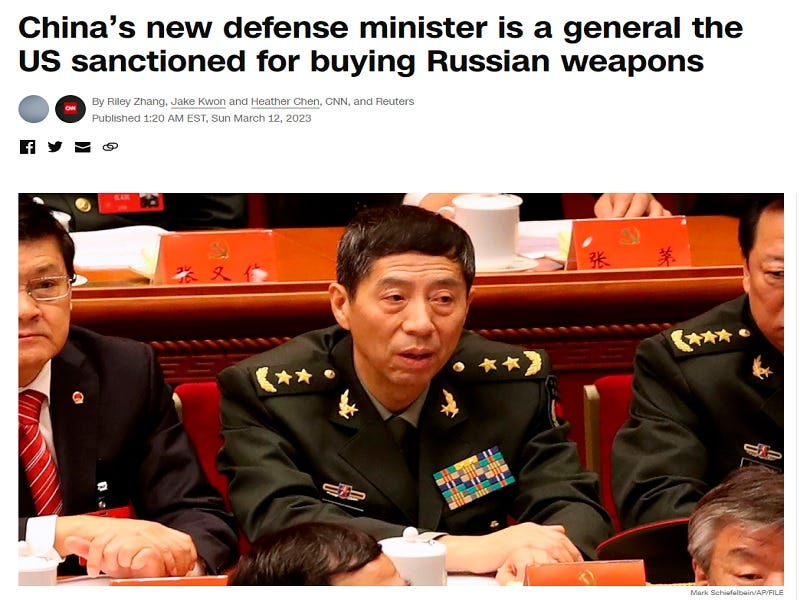Interpreting The Appointment Of A US-Sanctioned General As China’s New Defense Minister
There are many other officials with similar meritocratic credentials as General Li Shangfu’s for leading the People’s Liberation Army at this crucial moment in International Relations so China didn’t have to appoint someone who was sanctioned by the US. By doing so, it therefore also tacitly conveyed its conclusion that the hoped-for “New Détente” with the US was dealt a deathblow by last month’s balloon incident, thus removing any realistic possibility of those two entering into a series of mutual compromises anytime soon, if ever.
The US was unexpectedly placed in one of its most awkward diplomatic positions in decades after China just appointed a general that Washington previously sanctioned as its new Defense Minister. Li Shangfu had economic restrictions imposed against him by the Trump Administration for his role in purchasing big ticket Russian military equipment such as the Su-35 combat aircraft and the S-400 air defense systems. The US will thus have to look the other way if it wants to continue military dialogue with China.
It'll be forced to do so even against its own will considering that their intensified New Cold War competition will eventually lead to maritime and/or midair incidents that prompt an interaction of some sort between their top military officials in order to de-escalate the resultant crisis. The US can’t avoid interacting with General Li indefinitely so it’ll inevitably have to acknowledge his position, thus representing a major soft power defeat.
His appointment obviously wasn’t driven purely by the desire to humiliate that country by forcing it to engage with one of the same people who it previously sanctioned, but there’s no way that the ruling party didn’t consider this as an added bonus to his new role. General Li is regarded as the man who successfully led China’s military modernization program so it makes sense that he’d be rewarded by being given responsibility for the People’s Liberation Army (PLA) as a whole.
Still, the optics of appointing a US-sanctioned general as China’s new Defense Minister can’t be overlooked since it sends a strong message of defiance to that declining unipolar hegemon. Just last week, “China’s Foreign Minister Made It Clear That The People’s Republic Won’t Be Pushed Around”, and now the PLA is following up in its own complementary way to hammer home the point that this multipolar Great Power is truly independent of US pressure.
After all, there are many other officials with similar meritocratic credentials as General Li’s for leading the PLA at this crucial moment in International Relations so China didn’t have to appoint someone who was sanctioned by the US. By doing so, it therefore also tacitly conveyed its conclusion that the hoped-for “New Détente” with the US was dealt a deathblow by last month’s balloon incident, thus removing any realistic possibility of those two entering into a series of mutual compromises anytime soon, if ever.
It's this observation more so than anything else that’s the most geostrategically significant takeaway from General Li’s appointment. He wasn’t just promoted to his new role to humiliate the US by inevitably forcing it to interact with one of the same people who it previously sanctioned, but to show the whole world that China finally made the decision to oppose that declining unipolar hegemon on all fronts instead of pursuing a series of deals with it aimed at establishing a “new normal” in their ties.




